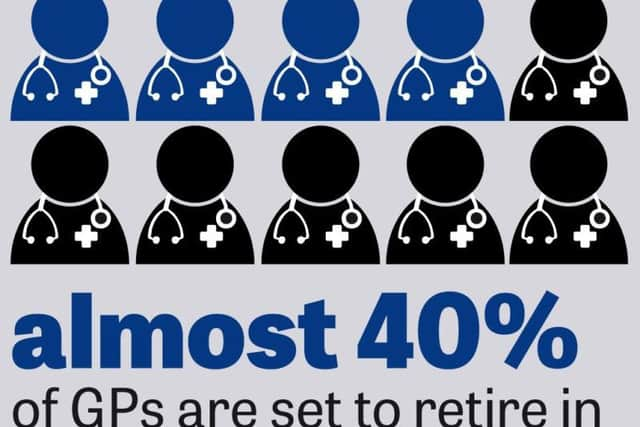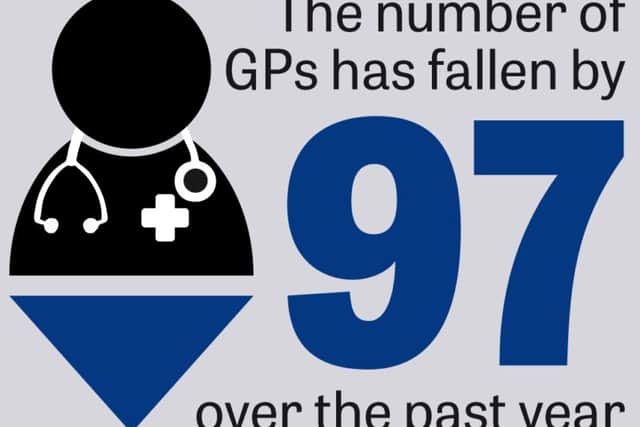Diagnosis-delivering pharmacists will come to the aid of Northampton's overflowing GP surgeries


Northamptonshire health bosses have predicted they will need to recruit 150 new GPs by 2021 if the NHS continues to be run the way it is.
But with two surgeries set to close in Northamptonshire in March after Virgin Care announced it would be pulling out of the town and figures showing 40 per cent of GPs are approaching retirement nationally, health bosses in Northamptonshire said the GP service has to change.
Advertisement
Hide AdAdvertisement
Hide AdDaventry GP Matthew Davis - the clinical leader on the board that drew up the county's five-year NHS savings plan (called the Sustainability and Transformation Plan) - said moves are already in place to increase the number of pharmacists able to deliver “same day care” in the county through the training provider 360 Training Limited.


He said: “These will be pharmacists by background, but actually once they have gone through a clinical training program, they will be able to do same-day care.
“It means they can examine people, make diagnoses and give out prescriptions.”
Furthermore, Mr Davis said the NHS in Northamptonshire will have to increase the number of new assistant-type roles to meet the £230 million savings demand.
Advertisement
Hide AdAdvertisement
Hide AdWhile health organisations are currently largely comprised of doctors, nurses, carers and midwives, Mr Davis said clinical teams will need to increasingly take on roles such as “physicians’ assistants”, “care assistants” and “nursing associates”. All of these roles require lesser training and have been described by The Royal College of Nursing as “nursing on the cheap.”


But Mr Davis, said: “It would be a concern, but that would be if we weren’t coming from that central view of quality.
“I don’t think there is any suggestion we will have fewer people. People might be doing different things, but no one is going to lose their job.”
John Wardell who is the head of the STP board said the new healthcare assistants would not be “working in isolation.”
He said: “We are moving much more towards working in integrated teams.
“The challenge for us is around recruitment and retention of staff.
“So we have to be creative and look at the evidence”.”